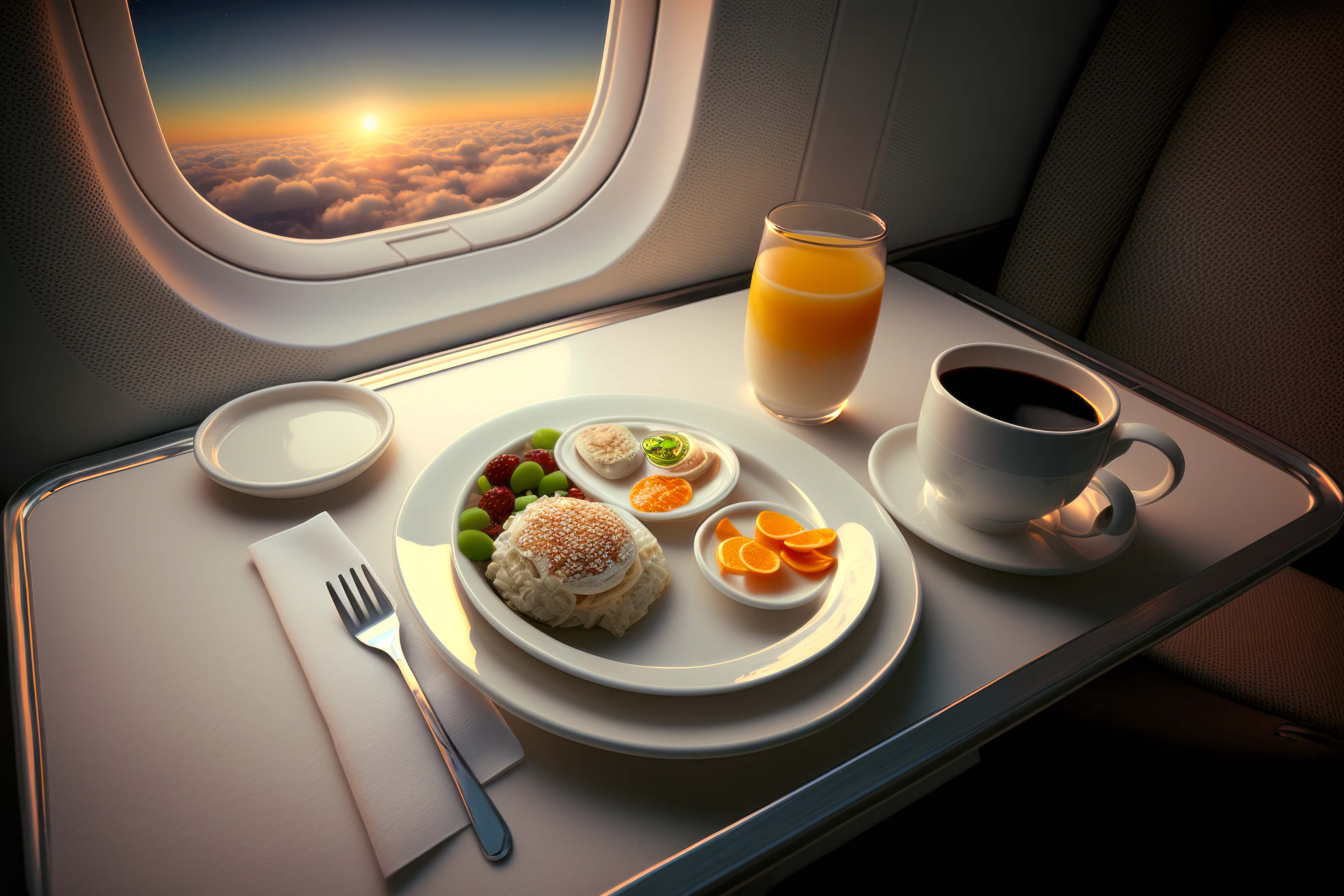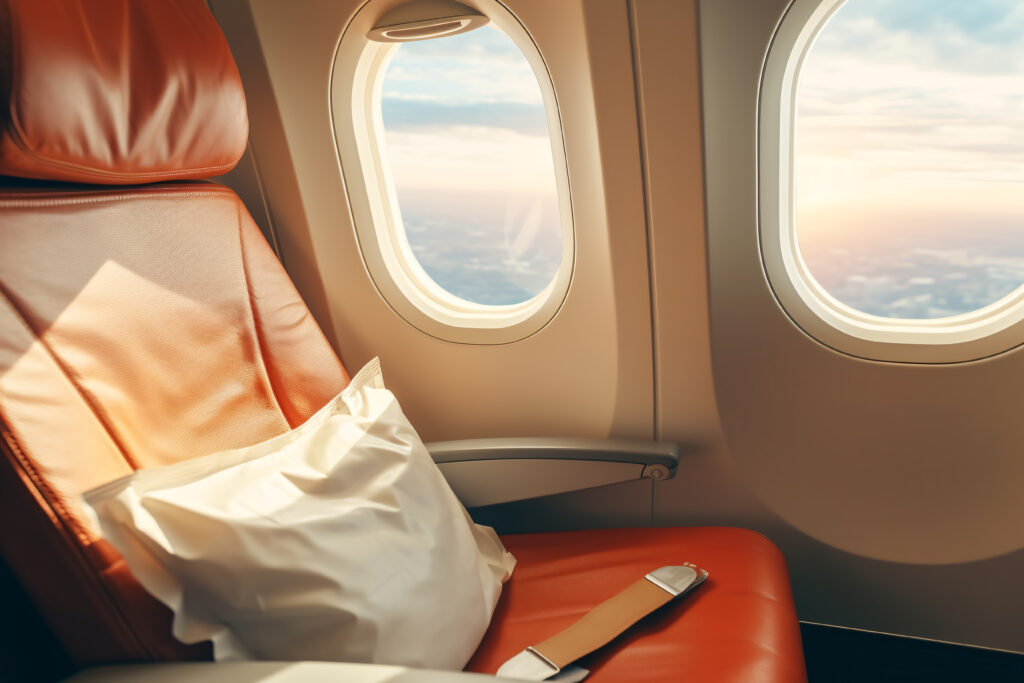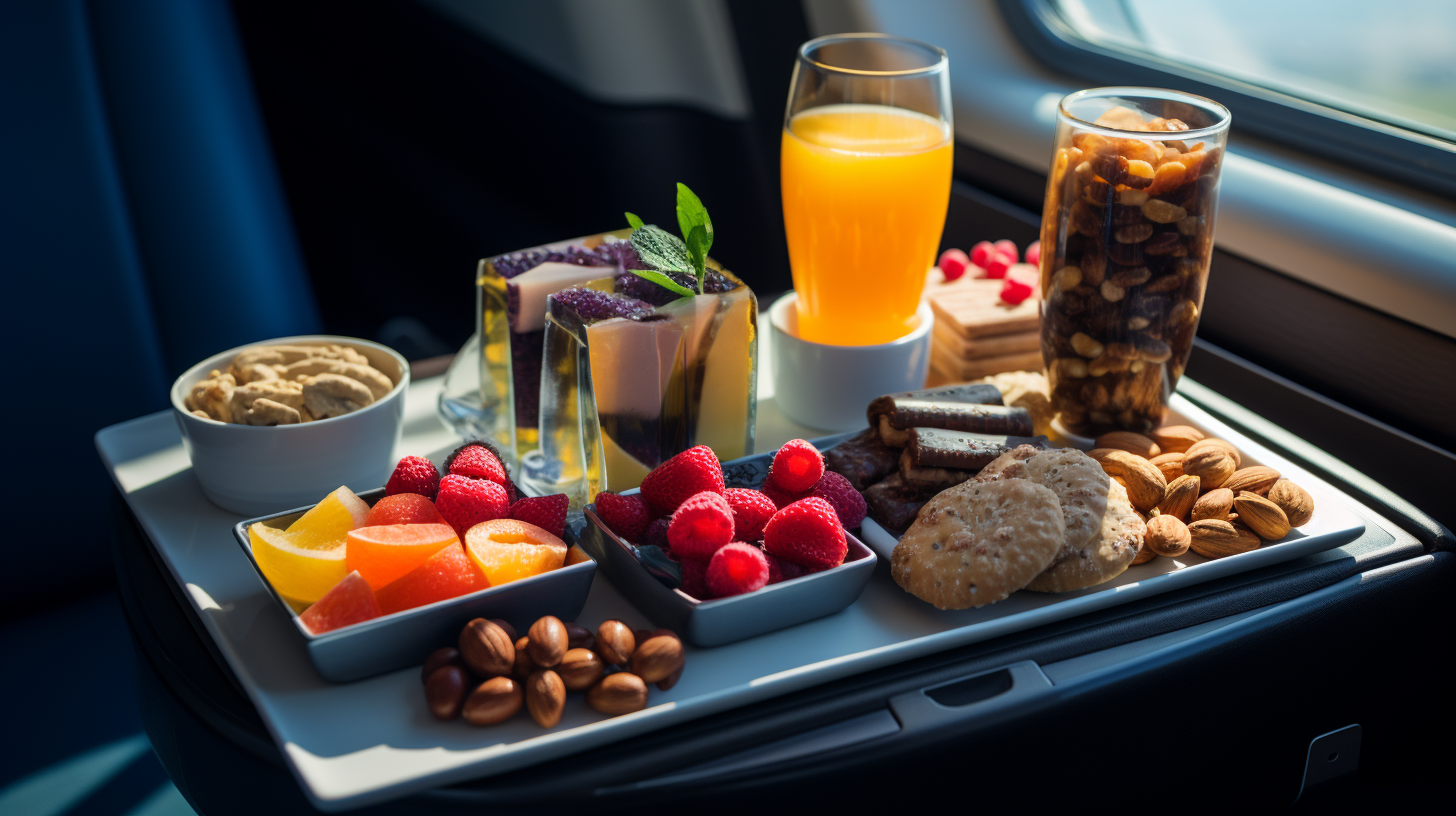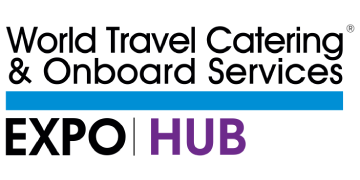
As the global focus on sustainability intensifies, airlines and rail operators face mounting pressure to address the travel industry’s significant carbon footprint. With consumers becoming increasingly informed about the brands they choose to travel with, this is leading to a rising demand for sustainable solutions. For airlines and rail operators, it has become increasingly important to demonstrate and educate passengers on how the onboard experience is becoming more sustainable.
According to survey data from Booking.com, four out of five global travellers agreed that sustainable travel is a priority for them, with 71% intending to travel more sustainably. However, while this intention isn’t always reflected in passenger behaviour, it’s placing pressure on airlines to prioritise sustainability and implement significant changes to the onboard experience. This may take the form of reducing food waste from onboard catering, using locally sourced food, providing carbon neutral amenity kits, and using recycled or plant-based raw materials for onboard comfort items and textiles.
An evolving industry
Discussing this global shift, Sarah Stedman, Accounts Executive at global airline amenities provider, John Horsfall explains “We have seen a lot of interest from our customers in wanting to quantify the amount of recycled content usage, to better illustrate to the customer the positive impact of each product.”

The growing attention reflects a heightened awareness and commitment among customers towards sustainable practices and environmental responsibility. Passengers are craving transparency in order to understand the environmental impact of their purchasing choices more accurately. As a result, suppliers like John Horsfall are working to provide their airline customers with more detailed information on the recycled content of their products, enabling informed decision-making and fostering greater sustainability throughout the supply chain.
Catering to this demand and shifting perceptions of sustainability across the onboard travel experience, are a variety of innovative and forward-thinking organisations in the onboard catering and services space.
Sustainable onboard catering
Focused on providing innovative solutions to airlines, onboard retailers and travel catering companies, Foodcase International is working to minimise plastic and food waste through its global network of third-party manufacturers.
Carefully designed packaging and production processes allow the business to prolong the shelf-life of its food products. Additionally, a commitment to manufacturing as close to clients as possible means products can be rotated until they are sold, reducing the overall carbon footprint of the meals served onboard.

Foodcase International’s ambient catering solutions are currently being used onboard Iberojet flights – a Spanish-Portuguese charter airline that mainly travels to Caribbean holiday destinations. According to Duncan de Boer, Chief Commercial Officer at Foodcase International, the solution allows the airline to “reduce its carbon footprint when uploading meals into the galley (single load vs two loads), less handling, and provide passengers with a consistent experience onboard.”
Customised airline amenities
Global player in the airline amenities industry, FORMIA offers bespoke onboard offerings for customers. Marisa Pitsch, Chief Customer Officer at FORMIA explains “Together with REBEL, experts in quantifying environmental impact, FORMIA calculates the environmental footprint of an airline’s products through Life Cycle Impact Analyses (LCIA’s), helping airlines to understand and communicate the associated environmental credentials of each product to build further trust and credibility with their passengers.”
Pitsch adds that FORMIA now offers certified “carbon neutral amenity kits” which can directly and positively impact the emissions of an airline.
Eco-friendly in-flight textiles
Another innovative organisation developing in-flight comfort products for a wide range of airline customers is John Horsfall. Alexandra Allen, Design Manager at John Horsfall describes its at-seat textiles including blankets, bedding and table linens as “a crucial and tangible part of the passenger experience.”
Committed to producing eco-conscious onboard options, Sarah Stedman explains how, for over 10 years, John Horsfall has implemented and maintained “auditable standards and programmes of continuous improvement across our manufacturing base”, including the Supplier Ethical Data Exchange (SEDEX) audit system.

Currently onboard with several of its airline clients is John Horsfall’s Re-Thread recycled range of on-board comfort items, which includes blankets and fillings for duvets, mattresses and pillows. Allen describes how the range is created using a variety of “recycled, regenerated and plant-based fibres and fabrics”, helping airlines to “take a holistic approach to sustainability, taking into account all aspects of the product life cycle; from raw materials to logistics, packaging, longevity, laundry & end-of-life disposal.”
Despite a multitude of organisations – ranging from those newly established to more seasoned companies – making waves in the space, driving change in the sector hasn’t come without a variety of challenges.
The cost-demand paradox
Echoing the challenges encountered across a variety of industries, cost remains a significant barrier to the widespread adoption of sustainable onboard products and practices.
Marisa Pitsch at FORMIA states “For airline amenity products, there are a number of challenges including the higher cost of sustainable materials, where although we have seen some materials come down in price in recent years, many are still considerably more expensive [compared to non-sustainable materials].”
According to research from consulting firm Kearny, sustainable products are 75-85% more expensive than conventional products. This is driven by several factors including increased demand outstripping production, the use of premium raw materials, and the implementation of sustainable certificates for products.
As the demand for sustainable products continues to grow, research and development into sustainable materials and manufacturing processes will be ongoing, and competition in this space will heat up. Moving forward, this will likely result in sustainable products and materials becoming more affordable, but only time will tell.

Meeting local standards
The logistical complexities surrounding laws and regulations across different regions can also present significant challenges for industry organisations.
According to Duncan de Boer at Foodcase International, “The main challenges for the industry, and for the airlines, to meet the sustainability goals in our specific industry are all the local legislations around waste disposal. Many countries, especially outside of a single community (like the European one), require incineration of all goods. Recycling is not an option for some legislations, which renders recyclable or sustainable packaging useless.
As airlines navigate the path to sustainability, collaborations with industry leaders such as John Horsfall, Foodcase International, and FORMIA offer promising and forward-thinking solutions. Together, they’re reshaping the passenger experience, ensuring that sustainability remains at the forefront of onboard innovation.
